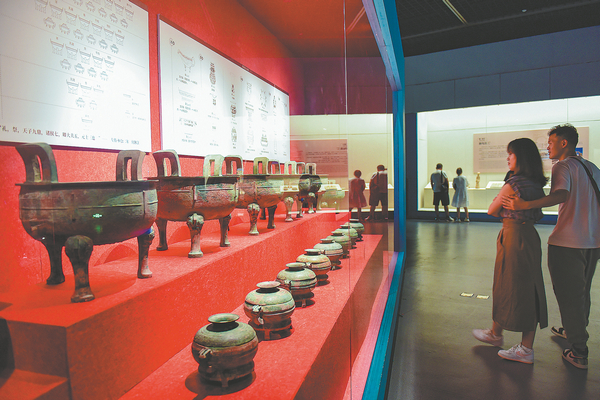

HANGZHOU — The Civilizations of the Great Rivers exhibition, the result of collaboration between Chinese and Italian cultural institutions, is being held until October in Ningbo Museum in East China's Zhejiang province.
Approximately 200 cultural relics are on display at the exhibition, including 108 artifacts from four Italian museums and 13 Chinese cultural institutions.
Items on show include seals and pottery from the Tigris-Euphrates river basin; mummified animals and painted wood coffins from ancient Egypt; decorated Harappan pottery from the Indus River Valley; and colorful pottery, jade articles, bronzeware and porcelain dating back to early Chinese history in the Yellow River and the Yangtze River basins.
A painted middle coffin (covered by a sarcophagus) from the Egyptian Museum in Turin, Italy, has captivated numerous visitors.
Xu Qin, who works at Ningbo Museum and organized the exhibition, explains that ancient Egyptian coffins consisted of an outer coffin, a middle coffin and an inner coffin.
"Although the middle coffin may not be as splendid as the outer one, the exquisite and colorful painting on its surface still offers us a glimpse into the ancient Egyptians' beliefs about life and death," she says.
"By displaying artifacts from different civilizations formed by great rivers in one exhibition, we hope to help people understand more of the rise and fall, the continuity and rupture, and the communication and mutual learning of the these civilizations, provoking deep reflection on the eternal topics of human development and coexistence," Xu says.
Cultural and archaeological communities in China and Italy enjoy a close relationship. Ningbo Museum has successfully collaborated with several Italian museums to hold exhibitions in recent years.
Xinhua